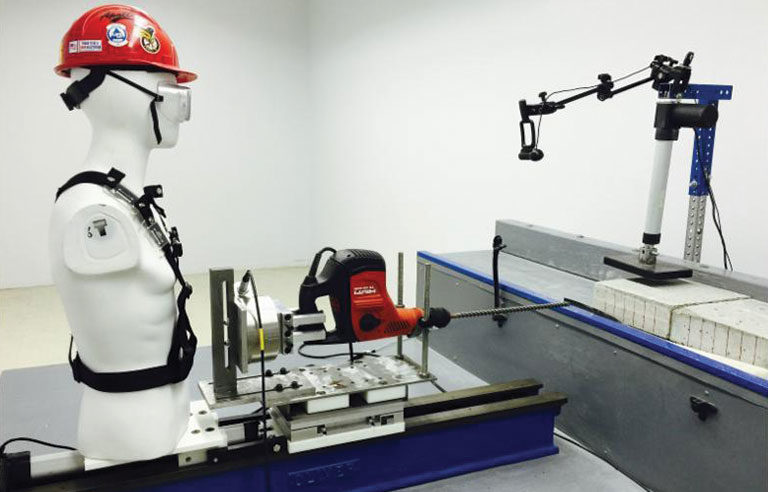Sharp drill bits decrease hazardous exposures during concrete drilling, researchers say

Silver Spring, MD – Workers who frequently drill concrete can reduce their exposure to noise, silica and vibration by regularly replacing dull drill bits with new, sharp ones, according to a recent study from the Center for Construction Research and Training, also known as CPWR.
Researchers used a specially designed test bench to conduct experiments and determine the effect of worn drill bits on workers’ exposure to drilling-related hazards.
Worn drill bits increased the time it took to drill holes, diminishing efficiency while increasing the time workers were exposed to the harmful effects of drilling. Compared with sharp bits, dull bits increased:
- Vibration (sharp bit penetrated concrete at 7.76 mm/s-1, while dull bit did so at 10.16 mm/s-1).
- The amount of breathable silica dust generated (dull bits created 80 percent to 114 percent more dust than sharp bits).
- Noise (sharp bit had a mean noise level of 112.8 dBA, while dull bit produced 114.4 dBA).
The researchers suggest manufacturers place wear marks on bits to alert workers that a change is needed, and that contractors initiate bit replacement programs and policies.
Post a comment to this article
Safety+Health welcomes comments that promote respectful dialogue. Please stay on topic. Comments that contain personal attacks, profanity or abusive language – or those aggressively promoting products or services – will be removed. We reserve the right to determine which comments violate our comment policy. (Anonymous comments are welcome; merely skip the “name” field in the comment box. An email address is required but will not be included with your comment.)

